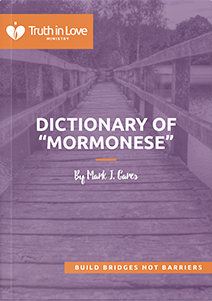Apostles
What does the Bible teach about Apostles?
The Bible teaches that Jesus chose a specific group of apostles to lay the foundation of the Church. These men were unique; they were personally called by Christ, eyewitnesses of his resurrection, and given authority to teach and write with the inspiration of the Holy Spirit. Their message, preserved in the New Testament, is the authoritative and unchanging foundation for all Christians built upon the cornerstone of Christ’s teachings.
After their deaths, there is no biblical indication that new apostles were meant to continue their role or receive ongoing revelation for the Church. Instead, Christians are repeatedly pointed back to the apostles’ testimony recorded in the Bible. Their teaching was not to be updated or added to—but faithfully preserved and passed down.
Therefore, it is necessary to choose one of the men who have been with us the whole time the Lord Jesus was living among us… For one of these must become a witness with us of his resurrection.
Acts 1:21–22
What does Mormonism teach about Apostles?
Mormonism teaches that the office of apostles continues today through the Quorum of the Twelve Apostles. These leaders are believed to have the same authority as New Testament apostles and are considered prophets, seers, and revelators. When they speak in unity, especially in General Conference, their teachings are often treated as direct revelation from God.
Mormon apostles are not required to be eyewitnesses of the resurrected Christ, and their words may go beyond or reinterpret the Bible. They can introduce new doctrine or clarify old teachings, often expanding the LDS Church’s understanding of salvation, ordinances, and eternal progression. Members are encouraged to follow their counsel without question, believing that obedience brings spiritual safety, even when their teachings change over time.
An ‘apostle’ is an ordained leader in the Melchizedek Priesthood in The Church of Jesus Christ of Latter-day Saints. Apostles are chosen through inspiration by the President of the Church, sustained by the general membership of the Church, and ordained by the First Presidency and Quorum of the Twelve Apostles by the laying on of hands. … In addition to serving as witnesses of Jesus Christ to all the world (Doctrine and Covenants 107:23), as Jesus’ apostles did, members of the current Quorum of the Twelve Apostles hold the keys of the priesthood — that is, the rights of presidency (Doctrine and Covenants 107:35; cf. 124:128).
Encyclopedia of Mormonism, 1:59-60 (1992)
Stop talking past each other. Gain a better understanding of the words that are unique to Mormonism and the differences of shared terms between Mormonism and Christianity.
Why This Matters
What we believe about apostles directly shapes what we believe about truth. If modern apostles have the same authority as those appointed by Jesus, then their teachings can redefine doctrine, reinterpret Scripture, and reshape the gospel itself. That leaves our LDS friends dependent on ever-changing voices rather than the unchanging word of God.
But the Bible teaches that the original apostles were unique. They were eyewitnesses of the risen Christ and were personally chosen to lay the foundation of the Church once and for all. Their testimony, preserved in the New Testament, isn’t meant to evolve—it’s meant to endure.
This uniqueness of the first-century apostles matters because a shifting foundation cannot hold the weight of eternal hope. If today’s apostles can revise what yesterday’s apostles said, how can anyone be sure of the truth?
The good news is we don’t need new messengers—we already have the message. God has spoken clearly and finally through Christ and His appointed witnesses. When we trust that foundation, we can be confident that the gospel we believe today will still be true tomorrow.
Scripture References
Acts 1:21–22
Ephesians 2:20
John 17:20
2 Peter 3:2
Summary
Christianity
The twelve, personally instructed and commissioned by Jesus.
Mormonism
A priesthood office of high authority.


